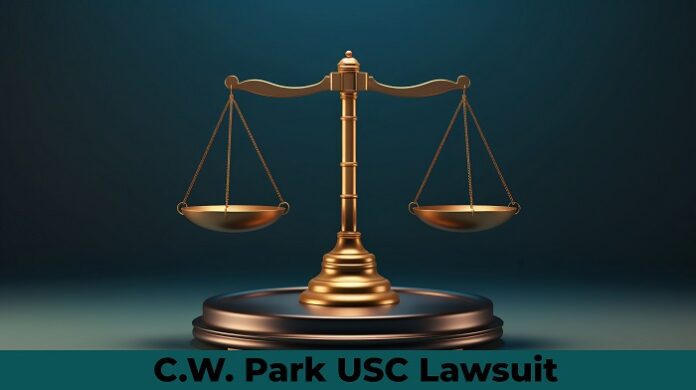Dr. C.W. Park began his career at USC in 2002 and eventually became an associate professor in the SCA. He gained acclaim for his teaching and cinematic abilities, and his ascent to full professorship in 2014 was nothing short of spectacular. But things changed in 2016 when Dr. Park was abruptly removed from his role as chair of SCA’s film production division. After a time of widespread praise from students and teachers alike, this sudden change came completely out of left field.
Dr. Park, who is Korean-American, responded to his unexpected dismissal by filing a complaint with USC’s Office of Equity and Diversity (OED), in which he claimed racial and national origin-based discrimination. The following investigation by the OED did note that SCA had diversity and inclusion problems, but it could not prove that Dr. Park had been the victim of targeted discrimination.
Impact of C.W. Park USC Lawsuit
Now that the C.W. Park USC lawsuit is firmly entrenched in modern discourse, its historical foundations are being examined. Dr. Park was the subject of an uproar in 2017 after seven female graduate students claimed retaliation and sexual harassment against him that had occurred between 2006 and 2015.
The long list of claims included improper conduct, such as making sexually suggestive comments, sending sexually explicit texts, and pressuring someone to do sexual favours against their will. Dr. Park was retained by USC until his retirement in June 2018, despite these accusations. Both students and teachers were outraged by this decision because they thought USC was doing nothing to stop a powerful professor from abusing his position.
In July 2018, Dr. Park took action by suing USC for defamation, following a subsequent Title IX investigation. However, disciplinary measures were not implemented at that time. He asserted that his reputation was tarnished because of how USC handled the investigation, which he described as a “predator or serial harasser.”
He went on to earn a master’s degree in computer science from Stanford University after finishing teaching. Dr. Park began her career at USC in 2004 as an assistant professor in the engineering school’s Viterbi department. She rose through the ranks despite allegations of harassment and discrimination based on her race. He claims that biased actions prevented him from advancing in his career, despite his many accomplishments, and he eventually filed a lawsuit to seek compensation for the discrimination he endured while in office.
The allegations of racial discrimination provide a new angle on the issue. Based on his racial identity and national origin, Park asserts that USC engaged in unfair discrimination against him. This incident calls into question USC’s stance on diversity and inclusion in the classroom. No matter their background, university faculty members entitle to equal treatment and opportunities. This case shows how important it is for organizations to combat prejudice wherever it exists, not only in their external communications but also in their internal policies and practices.
As the C.W. Park USC lawsuit shows, there is an ongoing struggle to guarantee that all students have equal access to education. To ensure that schools uphold their beliefs and cultivate an environment that is inclusive of diversity and tolerance, the case emphasizes the need for robust accountability systems. This situation has the potential to spark widespread reform by prompting colleges and universities to reevaluate their policies and procedures in relation to diversity, inclusion, and intellectual freedom.
Allegations
Dr. Christina Woo Park sued USC and Dr. C.W. Park in September 2023, making serious claims against both parties, including:
Charges levelled against C.W. Park
Dr. C.W. Park is accused in the lawsuit of harassing, assaulting, and preying on his former coworker for a long period of time. The accusations are distressing. It also alerts the professor to unethical behaviour in the classroom, such as when they alter study data or results.
- Harassment, violence, and predation involving sexuality
- Controversial methods in academia
Claims Leveled Against USC
In a similar vein, disturbing claims have surfaced that USC covered up complaints against the powerful Dr. C.W. Park for years. Moreover, the whistleblower was actively targeted in retaliation, according to the plaintiff, who claims that compliant frameworks at USC systematically shield powerful perpetrators. Following her resignation, the plaintiff brings attention to the heartless treatment she endured and the violation of her fundamental rights.
- A cover-up involving the misconduct of Dr. C.W. Park
- Harassment of whistleblowers through direct action
Potential Outcome
Lessons for university cultures and workplace norms abound in the c.w. park usc case. There needs to be a clear policy in place to deal with any kind of misconduct or discrimination, and transparency and accountability are of the utmost importance. The impact of power dynamics highlights the importance of examining institutional structures for possible imbalances.
This case highlights the importance of standing up against harassment and the power of united voices to make a difference.
Systemic problems in American higher education come to light by the c.w. park usc lawsuit. Reform is necessary to address diversity deficits and admissions controversies. Trust is restored through open and honest admissions that are free from influences of wealth or nepotism.
In order to close the diversity and inclusion gap, we must take proactive measures and remove the obstacles that marginalized communities encounter. The onus for creating campus climates that support equitable education is on universities.
Looking back, the USC legal drama forces an accounting and demands revolutionary changes to the world of higher education.
Conclusion
The C.W. Park USC Lawsuit has unquestionably exposed USC to harsh realities and opened a Pandora’s box for the university. Uncertainty, cynicism, and simmering rage on campus indicate deteriorating institutional health as investigations persist.
Still, we can’t lose sight of the vulnerable young teachers and students who are suing for reassurance. Moreover, their fundamental rights to a safe working environment, respect at work, and emotional health must take precedence over all else.
Here, what matters most is the moral fibre that binds a community, not the lawsuit per se. Further, how USC administration reacts today to defend the vulnerable will shape the spirit and character of the university for generations to come.
FAQ’S
Given the C.W. Park USC lawsuit, what are the important events that occurred before the case?
The background of the lawsuit includes Dr. Park’s illustrious career at USC, his sudden dismissal in 2016, and the legal proceedings that followed. Also covered are the seven female graduate students’ 2017 claims of sexual harassment against Dr. Park, which prompted a Title IX investigation.
What kind of reaction has the USC community had regarding the lawsuit?
Racism, harassment, and the university’s culture as a whole have sparked heated debates and discussions among USC students and faculty. Further, lawsuits filed against USC, Drs. Park and Elizabeth Daley, and the university itself stoked the fires of controversy. It exposed deeper systemic problems at the school.
Amidst the C.W. Park USC lawsuit, how is the general public’s reaction?
Gain a better understanding of the societal effects of the legal controversy by investigating the varied responses and viewpoints of the general population.





